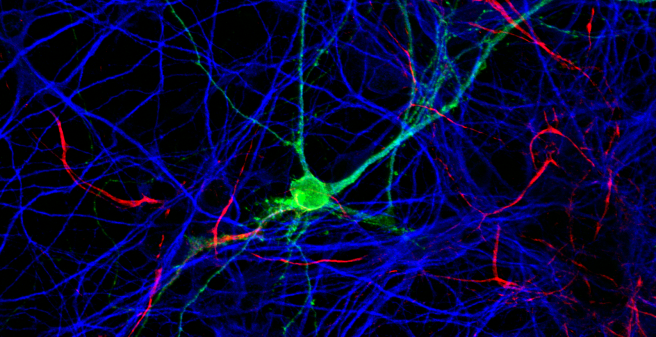„We seek to better understand the development and progression of neuroimmunological and neuroinfectious diseases with particular emphasis on multiple sclerosis to translate molecular findings into drug treatment and improve clinical care. In order to achieve this goal, we systematically study immunology, neurobiology and patient care using a wide methodological spectrum.“
The INIMS at the University Medical Centre Hamburg-Eppendorf was founded 2006 based on an initiative of the Gemeinnützige Hertie-Stiftung which intended to create a translational research institute for multiple sclerosis research. Committed to the mission to better understand the aetiology and pathogenesis of multiple sclerosis and other neuroimmunological diseases and to translate this knowledge into efficacious treatments. Besides cellular and molecular research, the INIMS also sets high standards in providing patient care.
To achieve these goals, basic research is interlocked with clinical activities ensuring access to patients as well as setting up operative platforms for conducting clinical studies.
